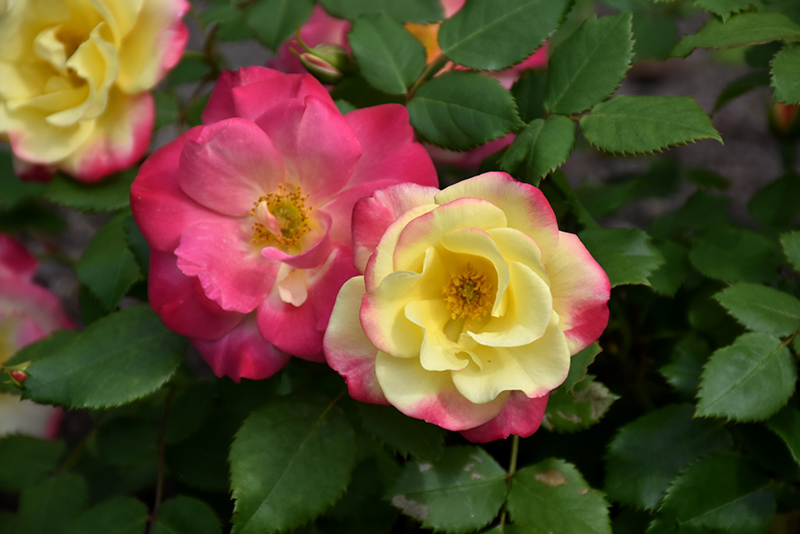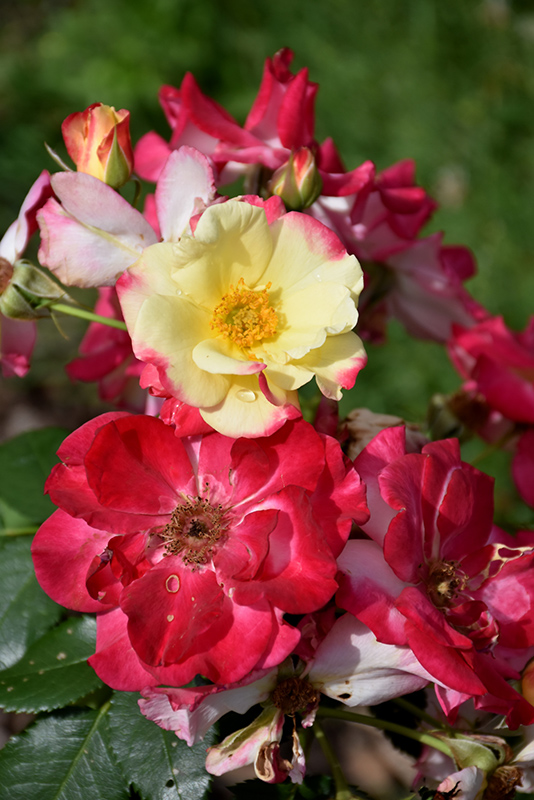VANDERMEER
PLANT LIBRARY
Find the perfect plant for your space by browsing through this extensive selection that we typically carry every year.
This library is for information purposes only.
Height: 3 feet
Spread: 3 feet
Sunlight:
![]()
Hardiness Zone: 3a
Group/Class: Canadian Artists Series
Description:
A beautiful variety producing clusters of pink and white blooms with intense yellow centers; habit is upright with vigorous dark green glossy foliage that is very resistant to blackspot; all roses need full sun and well-drained soil
Ornamental Features
Campfire Rose features showy clusters of semi-double hot pink flowers with white overtones, gold eyes and yellow centers at the ends of the branches from late spring to mid fall. The flowers are excellent for cutting. It has dark green deciduous foliage. The glossy oval compound leaves do not develop any appreciable fall colour.
Landscape Attributes
Campfire Rose is a multi-stemmed deciduous shrub with an upright spreading habit of growth. Its average texture blends into the landscape, but can be balanced by one or two finer or coarser trees or shrubs for an effective composition.
This shrub will require occasional maintenance and upkeep, and is best pruned in late winter once the threat of extreme cold has passed. It is a good choice for attracting bees and butterflies to your yard. Gardeners should be aware of the following characteristic(s) that may warrant special consideration;
- Disease
- Spiny
Campfire Rose is recommended for the following landscape applications;
- Mass Planting
- Hedges/Screening
- General Garden Use
Planting & Growing
Campfire Rose will grow to be about 3 feet tall at maturity, with a spread of 3 feet. It tends to fill out right to the ground and therefore doesn't necessarily require facer plants in front. It grows at a fast rate, and under ideal conditions can be expected to live for approximately 20 years.
This shrub should only be grown in full sunlight. It does best in average to evenly moist conditions, but will not tolerate standing water. It is not particular as to soil type or pH. It is somewhat tolerant of urban pollution. This particular variety is an interspecific hybrid.






